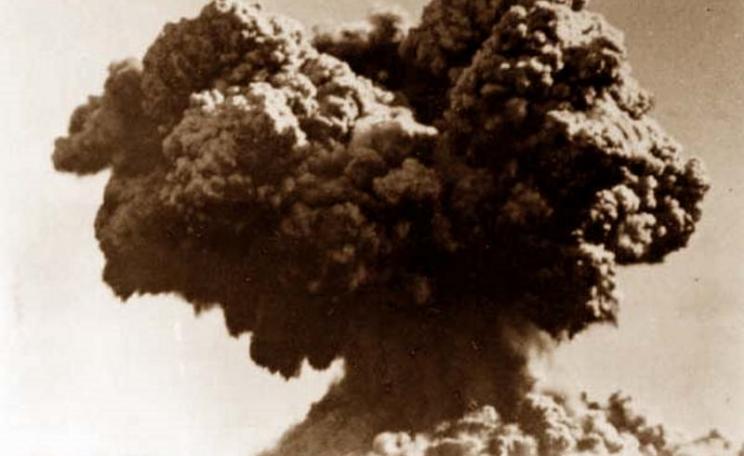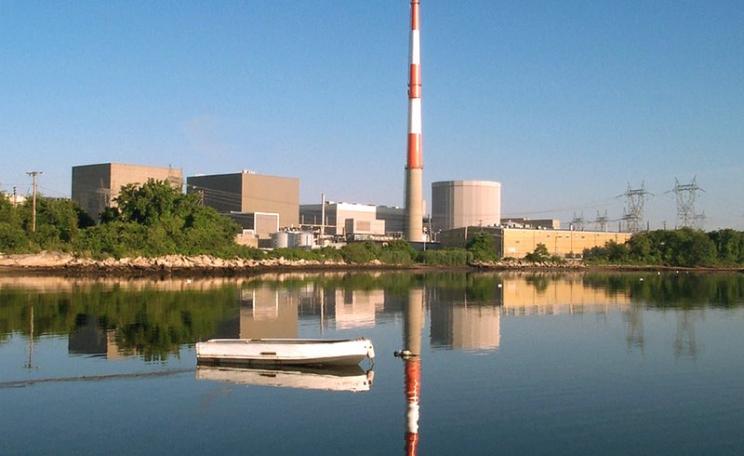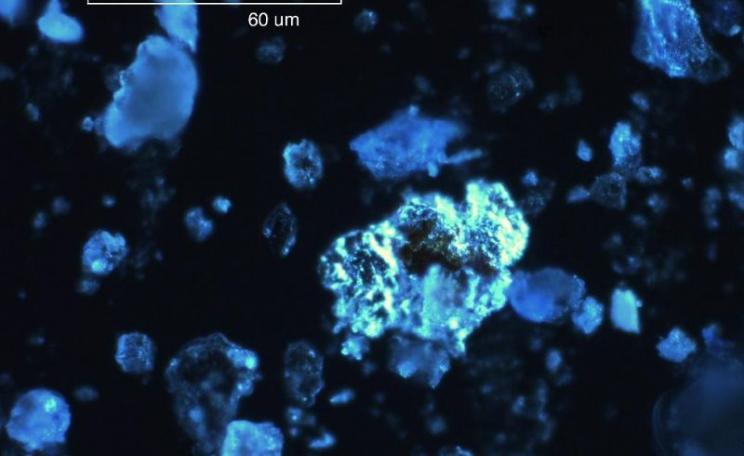We are taking the war to the Euratom regulators now. No one can justify a regime where the number of deaths in Paris from a dose of 1 mSv become not 1,000, but 93,000. That is a massacre. And this is not a single exposure but can occur every year!
If you build a complex machine which has the power to kill its builders, there should be a way to shut it down, to pull the plug.
In Kubrick's 2001 Space Odyssey the pilot had to physically crawl into the works of the ship's computer HAL and pull out the memory chips when it killed all the crew.
When the Euratom Basic Safety Standards Directive (BSS) was put together in 1996, the European Parliament added a Suicide Clause.
If any new important scientific information emerged that the levels of exposure permitted by the Directive were wrong, that it was killing people, the whole process had to stop until a new Justification - a positive appraisal of the benefits of the nuclear industry against its public health impacts - was done.
I wrote about this recently in two articles on The Ecologist: 'No to Bradwell's 'secret' radioactive discharges to the sea'; and 'Stopping Europe's nuclear industry in its tracks: here's how'.
Justification is a fundamental requirement in permitting radiation exposures. It is based on the Utilitarian philosophy of Jeremy Bentham. Although this is outmoded and arguably unethical (Who gets the cost? Who gets the benefit? Not the same people) it is the way things are really done nowadays.
And in some cases this is inevitable (e.g. kidney dialysis vs. expensive terminal cancer treatment). Resources are allocated and political decisions made on the basis of quasi-economic arguments.
How much harm does 1 milliSievert of radiation cause?
The current dose limit for radiation exposures is 1mSv. A useful page of the USA BEIR VII report version shows what it is currently believed this does.
It says 1mSv causes a cancer in one person in 10,000 exposed. Let's see an example: in the population of Paris (10.5 million) permitted exposures would result in 1,050 extra cancers. About 630 would die. These cancers are justified on the basis that the advantages gained to France by the practice (nuclear energy, atom bombs, etc.) balance the harm. Society believes this is an acceptable equation.
Same in London: 8.5 million population and 850 cancer diagnoses, 510 deaths. I bet you didn't know this. Would you have agreed? Yet it is there as if you had. It is the law!
So in Paris, capital of a country with contamination from many nuclear plants, radiation at the maximum permitted level would cause a number of legally licensed radiation deaths far exceeding anything terrorists have achieved with their machine guns and bombs.
This is the current official position. The reality is far worse. On December 1st, I published a letter which makes this clear. It appeared in the prestigious American peer-review scientific journal Genetics and was written in response to an earlier paper on the effects of radiation by Bertrand Jordan of the French Centre for Scientific Research in Marseilles.
We are taking the war to the Euratom regulators now. No one can justify a regime where the number of deaths in Paris from a dose of 1 mSv become not 1,000, but 93,000. That is a massacre. And this is not a single exposure but can occur every year!
Jordan's article in a 'Perspectives' review 'Marking the past - mapping the future' was about how the public were unreasonably frightened of radiation because science had shown, through the studies of the survivors of Hiroshima: that low doses of radiation were pretty harmless; that you needed very high doses before you increased your chances of cancer; and as for genetic damage, that there was no evidence that radiation caused any effects whatever in humans. The current risk model for heritable effects is based on mice.
The scientific process at work ...
Jordan's article irritated me. Last summer I spent three weeks in the High Court submitting evidence about all this. A significant part of the information which emerged was that the Japanese A-Bomb studies that Jordan believed in and was peddling as the truth, were massively flawed and probably dishonestly manipulated.
I wrote to the overall editor of the Journal and pointed some of this out. To my delight and astonishment, he took me seriously and suggested I provide an account of this which he would send to three expert reviewers. If they passed it, he would publish it and give Jordan space to reply.
This is how science should work, but I have to say, it is rarely how science does work in this area of radiation. In 2015 I wrote to the editor of The Lancet about a disgraceful article on the issue of the A-Bomb studies which they published in their 60th anniversary of Hiroshima issue.
I pointed out that the authors of that travesty of the truth included Richard Wakeford, ex-nuclear industry Rottweiler. I asked to be provided some space to make the points about the failure of the A-Bomb studies. The Lancet refused.
I then wrote a letter and submitted it. Instead of sending it for review, they sent it to the authors of the article! Who (naturally) said there was no merit in what I was saying. The Lancet then threw it out.
In 2016, Alexey Yablokov, Inge Schmitz-Feuerhake, Alex Rosen and I sent a letter about the failure of the current risk model to the editor of The Lancet, recorded delivery, sent from Geneva by the Independent WHO. There was no reply from The Lancet. This is utterly disgraceful, and the editors who made those decisions should be sacked and shamed.
My Genetics letter is now out there, and it is the trigger, or one of the triggers, for invoking the Suicide Clause of the Euratom 96/29 and 2013/59 Basic Safety Standards Directives and thus shutting down all nuclear energy. At its core is the evidence that the entire basis of the current radiation risk model is false and dishonest.
Piltdown Man has nothing on the 'Lifespan Study' scientific fraud
Most people, including Jordan, believed (and he stated in his article) that the Japanese A-Bomb study consisted of looking for cancer and heritable effects in groups of people who were exposed to radiation in Hiroshima and Nagasaki when the bombs exploded compared with groups who were not in the city but came in later.
So you have three exposed groups, near the bomb, further away and far away and one control group: not there when the bombs exploded. That might be a reasonable epidemiological study. And that is how the Lifespan Study (LSS) started in 1952.
But we discovered by some forensic digging into the annual reports of the outfit, that in 1973, when the early cancer effects began to be assembled, the US / Japanese Radiation Effects Research Foundation (RERF) organisation which superseded the original US / Japanese Atomic Bomb Casualty Commission (ABCC) changed the study protocols in mid study.
Why? Because it emerged (and they wrote this in their 1973 report) that the Not-In-City control group were 'too healthy', making the health of those who were exposed look bad (which is exactly what it was). In other words, the cancer rates in the exposed group were too high for their liking.
So they decided to look only at those groups who were exposed and to assume that their cancer rates were linearly correlated with their doses. These doses were not measured, but were calculated mathematically from studies carried out with A-Bomb experiments in the Nevada desert.
This is how the cancer coefficients on which the current risk model are based were created! But they are wildly incorrect.
How do we know? Well, we know from the effects on the leukemia children at Sellafield and all the other nuclear sites, the effects on Thyroid Cancer at Fukushima, the cancer effects in Northern Sweden seen in the study by Martin Tondel, the effects seen in all the Chernobyl-affected countries of Europe reviewed by Alexey Yablokov and many other peer-reviewed studies published in the last 20 years.
'The dose is too low' - a familiar but now defunct refrain
But whenever these are discussed by government committees and nuclear industry apologists, it always comes back to the A-Bomb studies, and the arguments of Jordan, Wakeford and others like them. We are told to deny what we see because the dose is too low.
The 'dose is too low' means that it is too low on the basis of the A-Bomb studies. But if the A-Bomb studies are wrong, then everything fits. This is their Queen on the chessboard and it is taken - captured in the High Court in London.
The LSS dose group populations, whatever their assumed doses, all lived on the contaminated sites of the towns for many years after the bomb. This contamination was derived from the Uranium and Plutonium in the bomb casing and fissile material. My description is based on Expert and Disclosed evidence presented by Prof. Shoji Sawada and Inge Schmitz-Feuerhake in the Test Veteran case.
The up-draught from the rising fireball at Hiroshima and Nagasaki sucked in moist maritime air which cooled with altitude and condensed on the 95% un-fissioned Uranium nano-particles created in the plasma. This produced 'black rain' over an area which included all of the dose groups used for the LSS study where dose was calculated by distance from the hypocentre.
The Uranium was measured later in the contaminated areas. But the LSS studies denied the existence of any fallout.
I have been working on this A-Bomb study issue since 2010 in connection with various court cases in the USA. The obvious way to see the real effects of the exposures, external and internal is to compare the cancer rates of the LSS groups with cancer in the national population or some other unexposed control group.
I used all-Japan data to show that the LSS data were wrong, but never got round to finishing this work, which is tedious and costly in time and effort and no one would pay for it. But a Japanese epidemiologist, Tomoyuki Wanatabe and colleagues did something similar in 2008.
Highest cancer rate / unit dose found in the lowest radiation exposure group
They employed the adjacent Okayama prefecture as control and compared age and sex specific cancer rates between 1971 and 1990. They found that there were significantly greater levels of cancer in all the exposed groups - including the LSS lowest dose controls compared with the Okayama control group, but also (to a lesser extent) when compared with an all-Hiroshima control group.
When compared with Okayama, the highest cancer effect per unit dose was seen in the lowest dose LSS group, where there was a 33% excess risk of all cancer in men at external doses estimated at 0-5mSv. The authors write: "the contribution of residual radiation, ignored in LSS is suggested to be fairly high."
We can make a rough assessment of how high. As calculated by the current risk model, this dose group 0-5mSv would not have received more than 1mSv from the internal black rain Uranium particles, and probably less. So being very conservative, let's assume that it is 1mSv.
Then that means that instead of the 1 cancer per 100,000 per 1mSv, we have a 33% increase on the background rate of about 450 cancers from other causes, which is 148 cancers.
This number, 148 times more than 'official' estimates, is the minimum error that Wanatabe's research defines in the LSS study. The real number is higher because the true internal dose (as calculated by the current model) is lower.
Incidentally, you may wonder why low doses of radiation had a more powerful effect than higher doses, per unit of radiation. Here is my explanation. Cancer arises when the DNA in cells is damaged, but the cells are not killed. Higher radiation doses are more likely to kill cells outright. So the lower doses are disproportionately carcinogenic.
Radiation is most definitely not good for you!
By the way, the internal dose to England and Wales from global weapons fallout that came down with the rain in the period 1959-63 was about 1mSv according to the United Nations Scientific Committee on the Effects of Atomic Radiation, UNSCEAR.
This caused an increase in infant mortality at the time of about 5%, and 20 years later the cancer rate had increased in real terms (age standardised) by about 35% - which fits pretty well with the Wanatabe 2008 finding.
It is these results and others in similar populations that are the basis of the risk model of the European Committee on Radiation Risk (ECRR) which I helped develop in 2003 and by now (in the ECRR 2010 publication) has been shown to be pretty accurate if you want to know the outcome of any exposure.
So this realisation and evidence that the LSS dishonestly discarded its control group when it looked like there would a result, feeds through to the 'justification' issue. There is now no defence. Of course they will wriggle and wriggle, telling us that radiation is good for you, Sellafield leukemias are caused by population mixing, and such such nonsense).
In fact Jordan replied to my letter in very much those terms. He wriggled and wriggled and (predictably) referred to how radiation might be good for you. But no one said we were wrong. No one said that they didn't discard the control group. And that means that no one can any more say the dose is too low. There is no referent.
The silent massacre
We are taking the war to the regulators and Euratom legislators now. No one can justify a regime where the number of deaths in Paris from a dose of 1 mSv become not 1,000, but 93,000. That is a massacre. And legally this is not a single exposure but can occur every year!
And it has been a silent global massacre.
You all have friends and family that have died from cancer. About one in four of those, maybe more, was due to the radiation in the weapons fallout in the 1960s. Unless they lived near Hinkley Point, Trawsfynydd, Bradwell, Sellafield or some other nuclear site or contaminated estuary which added its own further excess risk.
The death yield from Chernobyl has been epic, as Yablokov and others have shown. Sellafield discharges to the Irish Sea are the cause of the 10-fold excess child leukemia at Seascale, as everyone always thought, but which the government's tame committees can't explain because the basis of the dose being too low.
They are also the cause of the childhood cancer increases on the coast of Wales - which the Wales Cancer Intelligence (Yes!) Unit deny though fixing the numbers and environmental journalist George Monbiot believes because he knows no better. And the adult cancer increases in Wales also.
All these manifestations of radiation toxicity are denied on the basis of what forensic research now shows is a totally dishonest and manipulated study in Japan, paid for (and no doubt orchestrated by) the United States so as to permit bomb development. And as for Fukushima, watch this space. The thyroid cancers have already appeared.
Anyway, I want to thank the brave American Genetics Society editors, for allowing me to say this in their prestigious journal.
Let's invoke the Suicide Clause and pull the plug on the monster. It's simple.
Action: Submit your own claim for rejustification: UK; Ireland; all other EU countries.
The letter: 'Letter to the Editor on 'The Hiroshima/Nagasaki Survivor Studies: Discrepancies Between Results and General Perception' by Bertrand R. Jordan'. is by Christopher Busby and published in Genetics December 1, 2016 vol. 204 no. 4 1627-1629; DOI: 10.1534/genetics.116.195339. The letter is not open access, but the text can be found at the back of the Euratom Justification Campaign templates.
More information at www.greenaudit.org.







